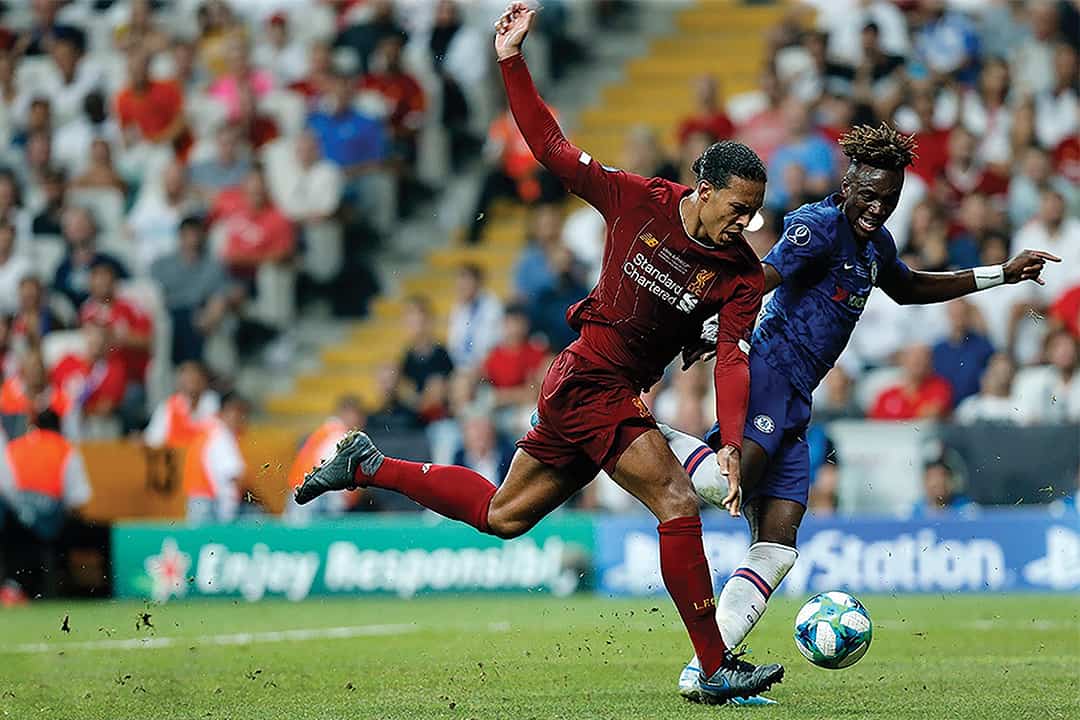For the past five months, the Chelsea soccer club logo has been plastered on the front page of sports publications for one reason or another. Todd Boehly, the owner of Chelsea FC, has proposed the establishment of an All-Star Game in the English Premier League (EPL), causing the old debate to resurface. Many long-term soccer fans, who are familiar with the culture of the English game, have found it absurd to pair the name “All-Star” — a ubiquitously American concept in sports — with “Premier League.” Before we get into why this format is harmful to the integrity of the game and how it will also fail logistically, let’s look at how Boehly envisions the system.
Simply put, Boehly wants the competition to be structured similarly to American leagues such as the NBA, MLS, and MLB. In the English context, this would translate into there being a North team and a South team. Evidently, the match will generate immense revenue due to high viewership; the money will then be spent among the English soccer ‘pyramid.’ While I must admit that conjuring possible lineups for each side and discussing their strengths would be entertaining for all of us, the concept has many flaws that are impossible to ignore.
What’s the purpose?
The All-Star game concept originated in MLB as a way of increasing the sport’s popularity. Major League Soccer (MLS) has used the same strategy in recent years to popularize and raise the reputation of North American soccer. Despite this, the Premier League teams do not require such advertisements because fans perceive their club as part of their identity, relish in their team’s success, and take rivalries more seriously than blood feuds. Supporting a club is similar to taking an oath of allegiance during childhood, and subsequently letting its performance dictate your mood for the rest of your life. Take it from a long-suffering Manchester United fan: a North versus South match is not necessary to urge me to keep a separate open tab on my laptop to watch soccer while pretending to take notes on a lecture.
You might counter this by saying that the All-Star’s objective would be different in England. The goal would be to have more high-calibre players and competitive games to watch. Just imagine: Erling Haaland playing alongside Cristiano Ronaldo — the current maestro meeting the original Premier League GOAT. Or Thiago Alcântara, Rodri, and Kevin De Bruyne lighting the midfield on fire while Reece James and Gabriel Magalhães team up to protect Aaron Ramsdale.
I agree that the idea of watching such a game seems momentarily thrilling, but after the initial hype subsides, it’s hard to imagine players of enemy clubs uniting to put on a show for us. Players in the same club fight under the same emblem, and national teams under the same flag; there’s nothing bonding the All-Star teams together. No matter how talented they are, I could never imagine myself rooting for Mo Salah to score or cheer while Kyle Walker flies down the field while aggressively slide tackling a player.
Logistical issues
This is where the logistical problems of the plan come into play. When are these games going to be played? Players need time and training to adapt to new techniques and teammates. As much as it pains me to agree with Jürgen Klopp, he was right in mentioning how Boehly failed to acknowledge that, unlike the English league, the American sports calendars provide athletes with four-month break periods.
Some proponents of the change argue that the All-Star game can replace the fight for the Community Shield, which occurs prior to the season kickoff. But consider how many top players from the preceding season would have switched teams. The transfer window would still be open during that time period, which means there would be no consistency in terms of line ups for the big fanfare.
A glorified reincarnation of the Super League?
Let us not forget that Boehly’s priority is not to please the fanbase. This idea came from the same guy who inquired why Tuchel does not use a 4-4-3 formation for Chelsea. He is a businessman, an investor, and is in it for the money. Despite his claim that any income generated from this concept would benefit the league’s weakest team, there is no guarantee that this will in fact occur. When asked about the notorious European Super League, which was fiercely rejected by fans in 2019, he said, “I never say hard nos [to] keep options alive.”
Bottom line
I don’t blame you if the preceding arguments have failed to persuade you of my case, as I believe that an All–Star game would be a fantastic idea in an ideal world. But even Chelsea President Todd Boehly himself acknowledged that such a change would be challenging to implement, saying that, “There is a real cultural aspect, [and] the evolution will come.”
Perhaps while Boehly is waiting for fans’ club dedication to disappear, he should focus on bringing his team another premier league trophy, as Chelsea hasn’t won it since 2015. Until that time comes, all the All-Star proponents can draw up their North or South team on the Fantasy EPL app or as their FIFA Ultimate team.


